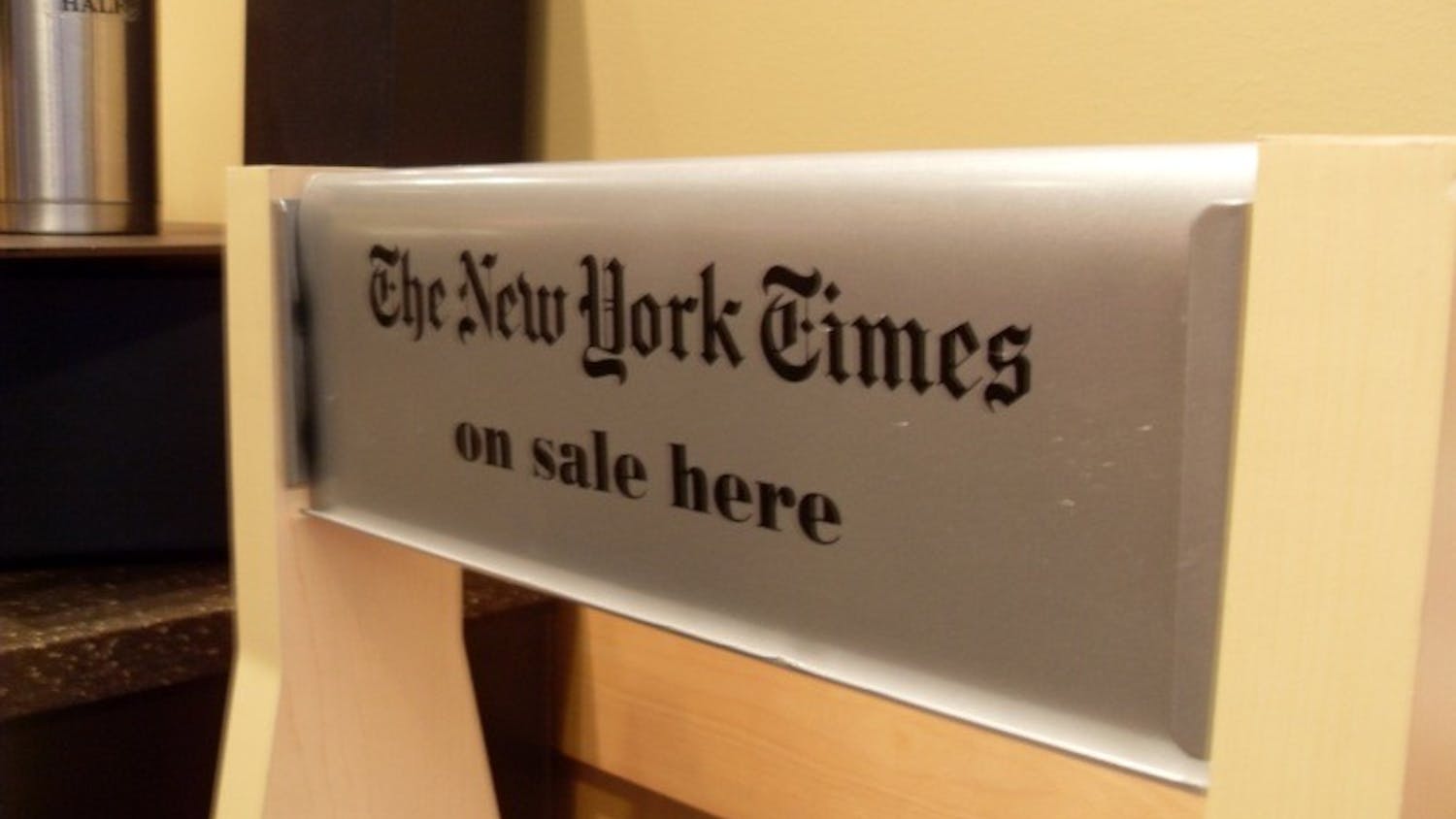This is a continuance of my time as a student leader in Student Government at Eastern Michigan University, where I discuss my opinion and insight from an outsider’s perspective. The first part can be found here.
A consistent reminder I was given each time I came up with an idea that would take more than two years to implement was that faculty, staff and administration are here longer than students. This became the primary excuse for the major roadblocks I encountered throughout my time at EMU, whether it be an introductory seminar which would include cultural competency training or free public transportation. Eastern Michigan doesn’t like change, in fact, most universities don’t; unfortunately, EMU has a particular aversion to basic principles of progression.
I believe one of the most destructive characteristics of EMU is the conflict between University Administration and University Faculty. Administration doesn’t communicate well with faculty, and faculty doesn’t give much thought upon the decisions made by administration. It seems the two sections of the university are continuously attempting to “best” each other. While I fundamentally believe they both have students in mind for every decision, I regularly question what part of the student experience they value. Administration has a specific care for the extracurricular and professional development of students, while faculty generally cares more about the functioning focus of their specific classroom. There is little interdisciplinary focus for our faculty, whereas our administration’s focus is very interdisciplinary. Both must communicate in a more progressive open manner.
Eastern Michigan is cursed by a history of awful administrative decisions made over the course of over thirty years. These decisions were typically made in a bubble with no input from anyone outside the administrative sphere. It is my belief that this time has largely passed. I say largely because there is one particular administrator who should be shown the door: Michael Valdes, the chief financial officer.
If you ever wanted a finance guy who will lie to you using marginally accurate charts, Valdes is your man. Aside from being the person who actively tries to make the EMU athletics program look like it is breaking even, spoiler: it isn’t, he is the person who is largely responsible for the EMU Parking screw-ups and the many bad backroom decisions hidden away from all eyes, sometimes including the President’s, over the years.
Others in administration, specifically Dr. James Smith and Dr. Rhonda Longworth, care deeply about the student experience at EMU. During my time at the university, I had the opportunity to speak at length with both. In my final address to the Board of Regents, I noted that they’d hired a competent leader and that allowing him to lead was vital to the university’s success; I vigorously stand by that assessment. Between Dr. Smith and Dr. Longworth, EMU is in good hands, though my standing criticism of administration overall is that sometimes the thinking is stale and requires harsh pressure from student leadership.
A great example of this has been public transportation. The Ann Arbor Area Transportation Authority (AAATA) had prepared a proposal for 100% free ridership for EMU students in mid-2018. The proposal would have enabled EMU students to travel for free on all fixed-route lines in the same manner as University of Michigan students.
The plan was expected to cost approximately $400,000 in the first year, though AAATA had not adjusted the figures to include our internal data on enrollment, which would’ve likely brought the program down to around $300,000. I proposed a $30 per academic year opt-out fee to cover the cost of the proposal. We had prepared the survey that AAATA had asked for, and we were prepared to move forward when administration stated “it isn’t a priority,” effectively killing the project.
Currently, an individual student who requires transportation to class via AAATA pays about $240 a year to obtain transit passes. This plan would have benefited some of the university’s most vulnerable students as the transit area for the AAATA includes connections to almost every area of Ann Arbor and Ypsilanti. The plan was to also negotiate a system by which EMU students could use the Canton-Connector system. It also would have enabled students who live in Ypsilanti easy access to grocery stores, given that Ypsilanti City is considered a “food desert.”
Administration dropped the ball, and Student Government in the coming months is likely to stand behind a proposal that only gives access to a quarter of the system. That is unacceptable given what is possible regarding public transit for EMU. Students must make their voices known regarding support for the full-access transit proposal.
The faculty members who have been employed at the university over the last two decades or longer have rightfully gained a disdain for administration. It is understandable due to the amount academics that have been written off in wicked attempts to subvert the mode and methods of the institution. Our faculty members are brilliant at what they do, and some of them have administrative experience or are administrators. It has been my experience that those who rise to the faculty leadership position on the university-wide range are less committed to the concepts of inter-disciplinary cooperation across the field at the university than those hosting extra office hours, career events and social gatherings to assist students.
With that said, I’ve never had a positive experience with Eastern Michigan University-American Association of University Professors (EMU-AAUP). In 2016, following the acts of hate speech laid upon the campus, EMU-AAUP’s response was to host a teach-in. Dr. Judith Kullberg, the then-president of the Faculty Senate, had attempted to align herself with black students. The EMU Faculty Senate is the body responsible for stamping changes to the general education academic requirements. She, along with those in Faculty Senate, was given the “Black Student 10 Point Plan” for consideration, which included measures such as general cultural competency.
Student Body President Tanasia Morton, an NAACP leader herself, told Dr. Kullberg it was time to institute cultural competency training for faculty and change general education requirements to mandate competency training for students. Ms. Morton eventually stopped attending Faculty Senate meetings because she determined their resolve was to do nothing aside from a couple useless resolutions stating support for black students. Faculty Senate was largely quiet during 2016 and 2017. Administration, which includes everyone in the executive cabinet, began conducting cultural competency training in late 2017; this was extended down to their direct staff also.
In early 2018, when it was revealed that Dr. Mark Higbee, a professor of History, had made racially charged comments about various black administrators, Dr. Kullberg, now the head of EMU-AAUP, actively defended him from the university’s punishment, which was to suspend Dr. Higbee without pay for a semester. Faculty Senate upon demands by several student leaders refused to respond. And those demands for a response came as recent as May 2019. There has been no response from Faculty Senate or EMU-AAUP regarding writing cultural competency training into the faculty contract or changing general education requirements to require cultural competency. Higbee is currently still employed and teaching. And he is suing the university for the punishment he received for his racism.










